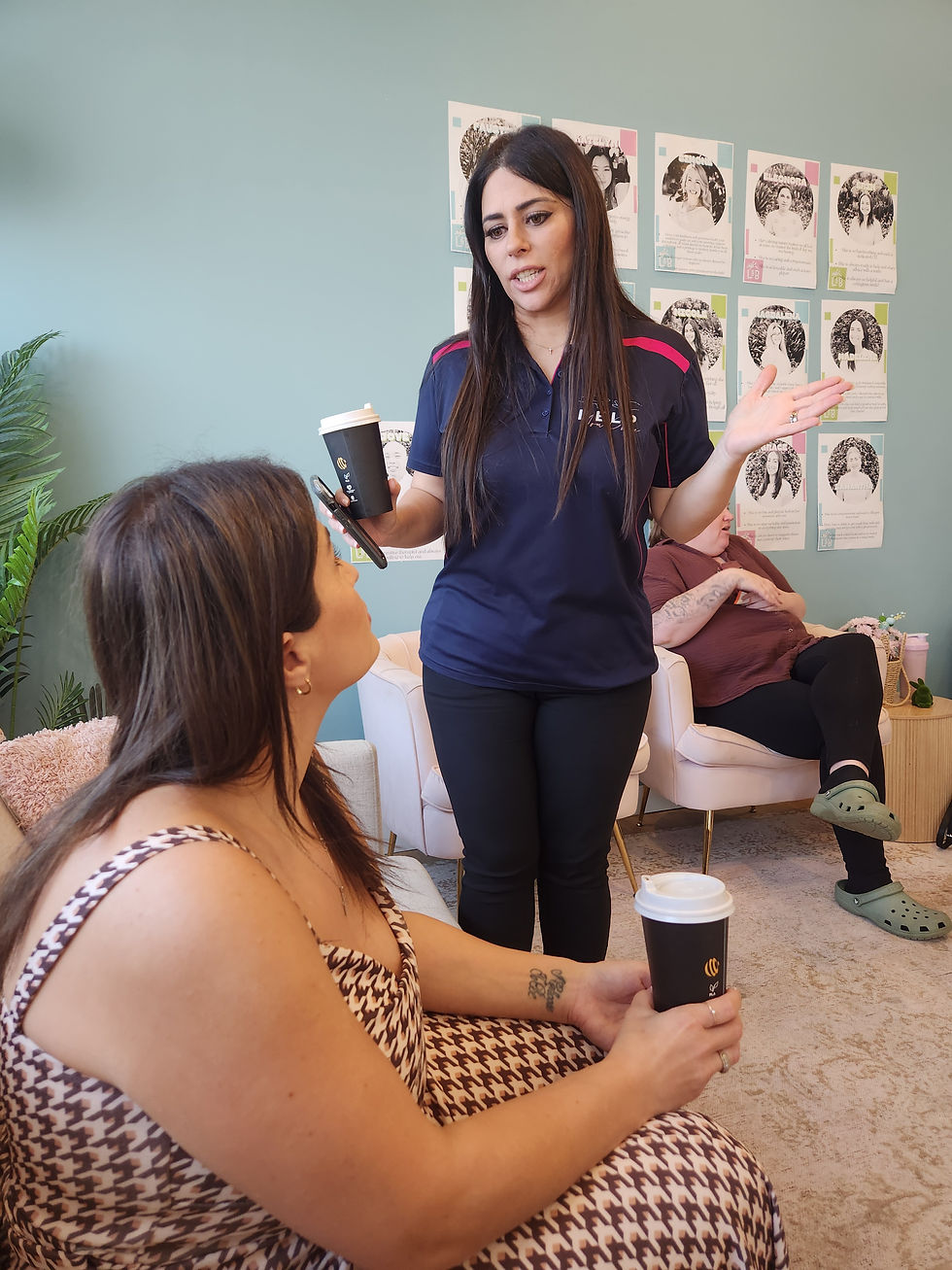Sleep Deprivation: The Monster Lurking in Most Autism Carer's Closet
- Help You Cope
- Oct 20, 2023
- 2 min read
Updated: Dec 1, 2023
Let's get real about a challenge that's no stranger to Autism caregivers: sleep deprivation. Whether it's day three or day five hundred of not getting a good night's sleep, your patience, which is normally as sturdy as a rock, can become as fragile as a strand of hair. Your head pounds, you move through the day like a zombie on autopilot, and you wonder how you're even standing. Anything that would usually be a minor stressor or annoyance has now magnified to epic proportions.
The Sleep-Deprived Nightmare
Picture this: more sleepless nights, a perpetually messy house, screaming kids, and all the extra responsibilities you need to juggle with a brain foggier than the densest fog you've ever seen. It's a recipe for disaster.
Yelling at your kids becomes an unfortunate norm, and you hope your neighbors don't mistake your outbursts for something more serious. Guilt follows soon after, and you start feeling like the worst parent in the world. If this scenario sounds all too familiar, you're not alone. It's more common than you might think.
The Impact of Sleep Deprivation
Sleep deprivation has a profound impact on your mood. It cranks up negative emotions, such as anger, frustration, irritability, and sadness, to a whole new level. But here's the crucial point to remember: it's not your fault. The way you react when sleep-deprived is due to a perfectly understandable reason. Sleep deprivation interferes with your brain's usual mental processing, the very process that helps you cope with everyday stresses.
Coping with Sleep Deprivation
Now that we've shed light on the sleep-deprived monster, it's time to talk about coping strategies:
Recognise Mood Changes: Try to recognise when your mood is shifting before it escalates. Awareness is the first step to regaining control.
Avoid Confrontation: Stay away from confrontational situations, people who tend to escalate your mood, and social media pages that bring negativity.
Embrace Fresh Air: Stepping outside for a breath of fresh air can work wonders for your state of mind. Mother Nature has a soothing effect.
Moderate Caffeine: Caffeine might be your saviour, but don't overdo it. Excessive caffeine consumption can interfere with your ability to sleep later.
Postpone Major Decisions: When you're sleep-deprived, it's not the time to tackle big tasks or make significant decisions. These can wait for a day when you're more well-rested. Eat Regularly: Don't skip meals. Irregular eating patterns can lead to glucose dips and increased moodiness. (P.s I never seem to forget to eat, sleep deprived or not).
In conclusion, sleep deprivation is a challenging part of being an autism caregiver. It's important to recognise the signs, employ coping strategies, and most importantly, remember that you're not alone in this challenging journey.
Take care of yourself, and when sleep allows, recharge your strength to be the incredible caregiver that you are.
Moreover, we invite you to explore our support groups and services by visiting our website www.helpyoucope.com.au
Connecting with like-minded individuals who understand the unique challenges of caregiving, can provide invaluable support and companionship. You're not alone on this path, and together, we can find strength and solace.





Comments